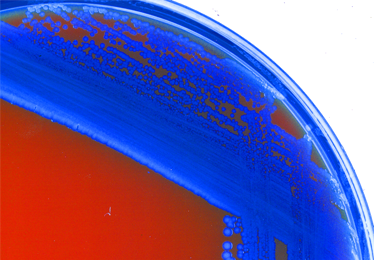A Comparative Analysis of Standard Plate Counting and Alternative Quantitation Methods Using ATCC® 8739-MINI-PACK™
ASM VA 2025
Lynchburg, Virginia, United States
November 07, 2025Abstract
Traditional microbiological plating and colony-forming unit (CFU) counting is the standard for enumerating bacterial cells in a culture as it is effective and inexpensive. However, the drawbacks of this method are that CFUs only account for cells that grow under specific laboratory conditions and doesn’t account for cell clumping—both factors leading to an underestimation of the total number of cells. Additionally, obtaining CFU counts can be time-consuming as the incubation period can be anywhere from days to weeks depending on the organism. Alternative methods to plate counting have been developed to allow for quicker and more accurate results. Here, we used Escherichia coli (ATCC® 8739-MINI-PACK™) formulated as a ready-to-use glycerol stock to compare several of these alternative methods (impedance and fluorescent flow cytometry, including live/dead staining) to plate counting.
Our data demonstrated consistent CFU values for E. coli on all three days for the plate count method; the alternative quantitation methods identified higher concentrations of cells in comparison to plate counting. This is most likely due to the ability of these methods to detect non-culturable but intact cells. The greatest difference in the methods was the amount of time to results and precision with the alternative methods providing quicker and more precise results when compared to CFU counting. With proper optimization, these techniques could be better suited to estimate CFU counting. Further, the use of these alternative methods also gives scientists a better understanding of the overall physiology of the cells.
Download the poster to explore a comparative analysis of quantification methods.
DownloadPresenter
Sydney McKnight, MS
Biologist, Microbiology Product Development, ATCC
Sydney McKnight is a Molecular Biologist at ATCC, where she supports the Microbiology Product Development group in advancing high-quality reference materials, microbial standards, and assay development. She holds an MS in Biochemistry and Molecular Biology from Georgetown University and a BS in Biochemistry with a minor in Leadership from Christopher Newport University. Her past research explored the effects of cold plasma on wound healing, sparking her continued interest in innovative biotechnological applications that bridge fundamental science and real-world impact.
Explore our featured resources
Standards and Controls
Support your testing and assay development needs with high quality reference materials and national consensus standards from ATCC.
More
Bacteriology and Archaea
ATCC offers a variety of bacterial and archaeal strains with applications in a variety of research and industrial applications. Our growing portfolio includes antimicrobial-resistant strains, quality control organisms for commercial identification systems, a wide selection of extremophile strains, and genomic and synthetic DNA.
More
Type Strains
Because microbial strains within a species can show a wide range of genetic differences, having a point of reference for microbial identification is of tremendous value to life science research. Learn how type strains provide this reference.
More